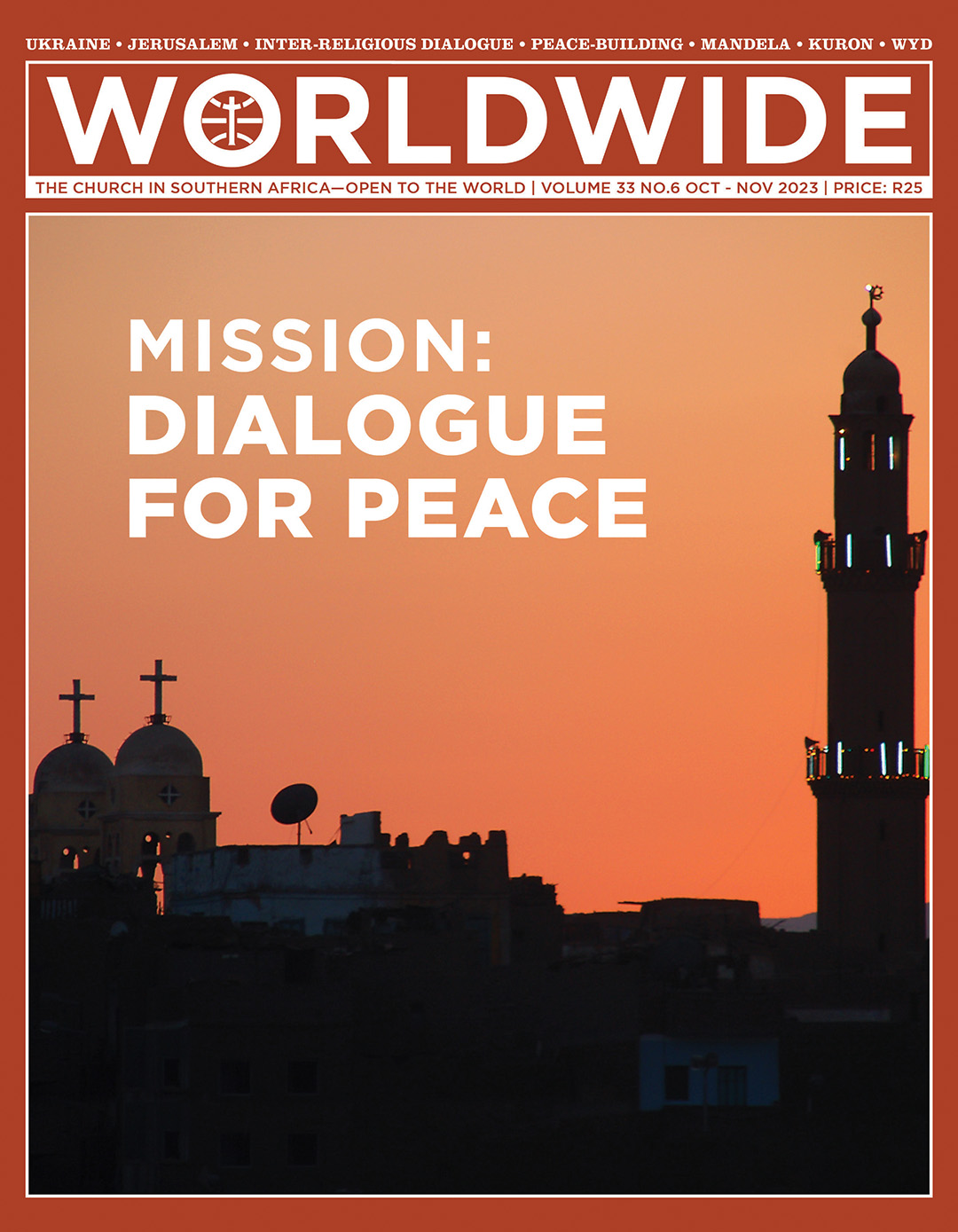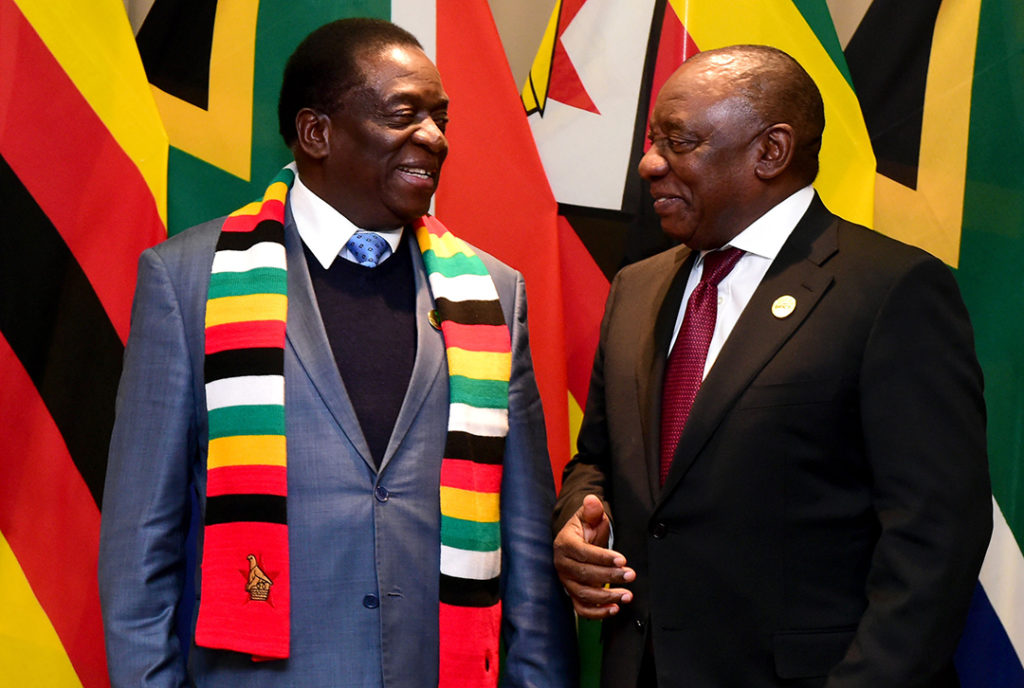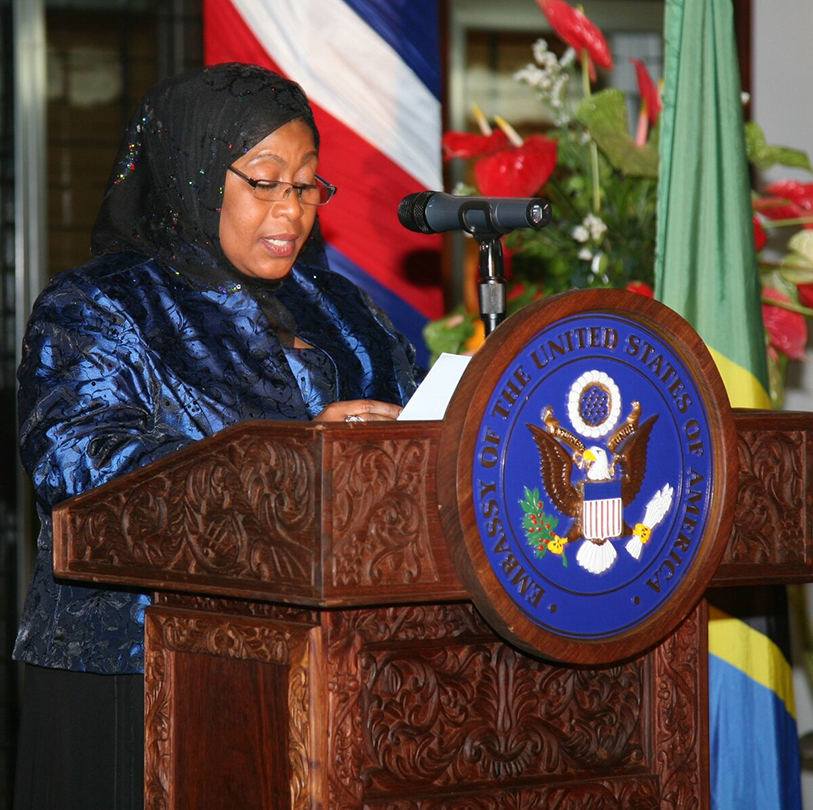
MISSION: DIALOGUE FOR PEACE
The Mosque minarets and church domes of the front cover, facing each other at twilight, transmit a sense of harmony and serenity. The two main religions of the world, Christian and Islam, are called to a mutual understanding and peace-building for the well-being of humanity. The essence of its traditions, far from fundamentalist interpretations, should lead their faithful to pursue together the values of justice and fraternity.
INSIGHTS • DIALOGUE

Dialogue, yes; but not at any price
BY Mike Pothier | Programme Manager, SACBC Parliamentary LIAISON OFFICE, CAPE TOWN
ONE OF the more interesting outcomes of the recent BRICS summit, held in Johannesburg in August, was that Iran and Saudi Arabia both became members of the organisation. These two countries have been enemies for decades, each of them striving for dominance in the fragile region of the Middle-East, their rivalry spurred on by religious difference—the Saudis regard themselves as the guardians of Sunni Islam, while Iran is the home of Shia Islam.
Even though they have never actually gone to war against each other, they have fought terrible proxy wars in places like Yemen and Syria, and have supported opposing sides in various other conflict situations, including in Palestine.
Now, though, they find themselves sitting together at the BRICS table; and they are not alone in this regard. China and India, founding members of BRICS, share a contested border in the Himalayas, and their armed forces regularly exchange fire. Fortunately, up to now, this has not led to full-scale war, and it may just be that their joint membership of BRICS has something to do with this.
Dialogue—talking—instead of fighting is certainly a great prize, and it is something that Catholic social teaching has always promoted. Writing sixty years ago, in the shadow of the Cold War and the threat of nuclear confrontation, Pope St John XXIII said, “When differences [between states] arise, they must be settled in a truly human way, not by armed force nor by deceit or trickery. There must be a mutual assessment of the arguments and feelings on both sides, a mature and objective investigation of the situation, and an equitable reconciliation of opposing views.” (Pacem in Terris 93).
It is one of the great achievements of the United Nations, and of other multi-lateral institutions, that there has been no World War Three. Back in the 1950s and 1960s, when the United States and the Soviet Union were expanding their spheres of influence, and the tension between NATO and the Warsaw Pact was at its highest, not too many people would have bet against another world war.
So, we should be grateful when rival nations get together in forums like BRICS, and hope that, as they find common ground on matters of trade, development, finance and the like, they gradually begin to put their weapons away.
However, there is another side to the dialogue coin. There are also times when ‘just talking’ isn’t enough; when dialogue, far from bringing about justice, becomes a substitute for it.
Again, a recent event provides an example of this. For at least the fourth or fifth time, the ruling ZANU-PF party effectively stole the August 23rd Zimbabwean elections, as all objective observers knew it would. ZANU-PF is able to rig elections every five years largely because it has never had to face any consequences for doing so. There has been lots of dialogue over the years, with South African leaders and politicians from other Southern African countries talking first to Robert Mugabe and then to Emmerson Mnangagwa, but all that this dialogue achieved was to signal to these two autocrats that the worst that could happen for rigging an election, was another round of talking.
Personal sanctions should have been applied to members of the ZANU-PF government long ago; their ability to travel in the region should have been curtailed; their embassies could have been downscaled; Zimbabwe could have been suspended from the Southern African Development Community and even from the African Union. Instead, there has been just a bit of gentle dialogue, which has simply enabled the continuation of despotic rule in Zimbabwe under the guise of an electoral democracy.
In other words, there can be ‘cheap’ dialogue, where no difficult questions are asked and no serious demands are made, even though they ought to be. This helps no one, apart from the world’s bullies and dictators; for the ordinary people, like the long-suffering Zimbabweans, it only makes things worse.
Let us hope and pray that the dialogue which will take place between rival nations at future BRICS meetings will be of a much more genuine kind.

